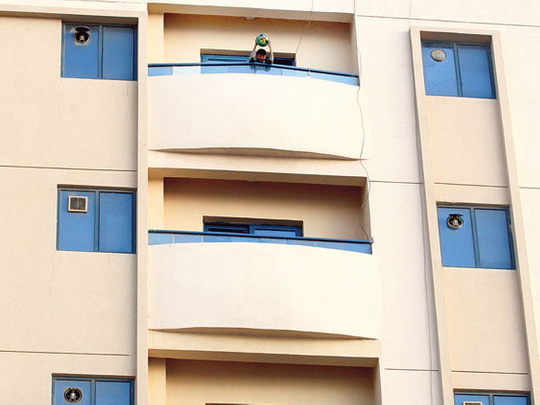
Abu Dhabi: Losing a child, due to accident or illness in any circumstance is a horrifying experience, but more so if a parent had actually contributed to the dreadful incident.
The recent loss of five young children in the UAE due to a variety of negligence/accidents has brought forth Gulf News' campaign to make parents more attentive in monitoring children's activities.
"Losing a child is the toughest experience a parent may endure, the shock is intolerable and the pain is indescribable," Dr Dolly Habbal, consultant psychologist told Gulf News.
The death of a child before or after birth is one of the most painful things that can happen to a woman.
"After two miscarriages I had at the very end of my pregnancy, I can only say the worry of losing again is tormenting," said Noha (names changed for confidentiality).
"Losing a child is and will always be excruciating, but losing a child to a disease is probably a bit less distressing than an accident, as the element of guilt adds to the pain," added Dr Habbal.
At some time, every parent worries about something bad happening, but no one expects that it would. As such, no one plans on how to deal with such devastation to the family and individuals — whether parents or siblings.
"No matter what the reason is, a part of a parent will never accept the loss, and it may end up being the toughest thing a parent will ever endure or understand. Perhaps the most important element to understand is that grieving is a process that takes time, and that every person goes through this process at a different rate. Comparing yourself to another is not a way to analyse if you are making progress or dealing with the sadness properly," Dr Habbal said.
Dr Habbal explained that grieving runs a course of five stages. The progressing rate and time from one phase to the other depends on each person.
Shock and denial
"The incident falls as a shock that seems so illusory, a dreamlike incident. Parents keep on analysing every step of the incident, every word said and try to understand what actually happened replaying the incident over and over in their head denying it really occurred and feeling unable to handle it," explained Dr Habbal
Pain and guilt
"Pain overwhelms parents at this stage and they start blaming themselves and wonder what could have been done to prevent it," she added.
Anger
"Nothing makes sense, and no pain can bring back the lost child. Parents are drowned in anger mixed with a sense of unfairness that the incident occurred to them, so they start victimising themselves," Dr Habbal said.
Depression
"Parents realise their beloved child isn't coming back. People and friends go back to their lives and parents start facing the sad reality all by themselves. The daily life starts weighing, emptiness fills them up and they are torn apart between a reality they resent and a past they want to live in," she added.
Life goes on
"Parents see that life goes on, people around them who used to support them are now busy in their lives. Parents are surrounded by all sorts of events: babies are born, graduations, weddings, happy and sad events… etc. in brief, life goes on. They start to resume work and at least do what they have to do," Dr Habbal explained.
Time may not heal all wounds, and parents will never forget. But, with time, people learn how to cope with their feelings, and begin to take steps to live their lives, but only with the precious memories of the child.
Dr Habbal explained that some will start giving themselves the chance to experience happiness again and others will agonise longer.
"My life was never the same after losing my child, some sadness shadows me. Happiness is scarce and never complete, it is mixed with sorrow," said May.
Dr Habbal explained that grief support groups of people who experienced similar situations would help.












